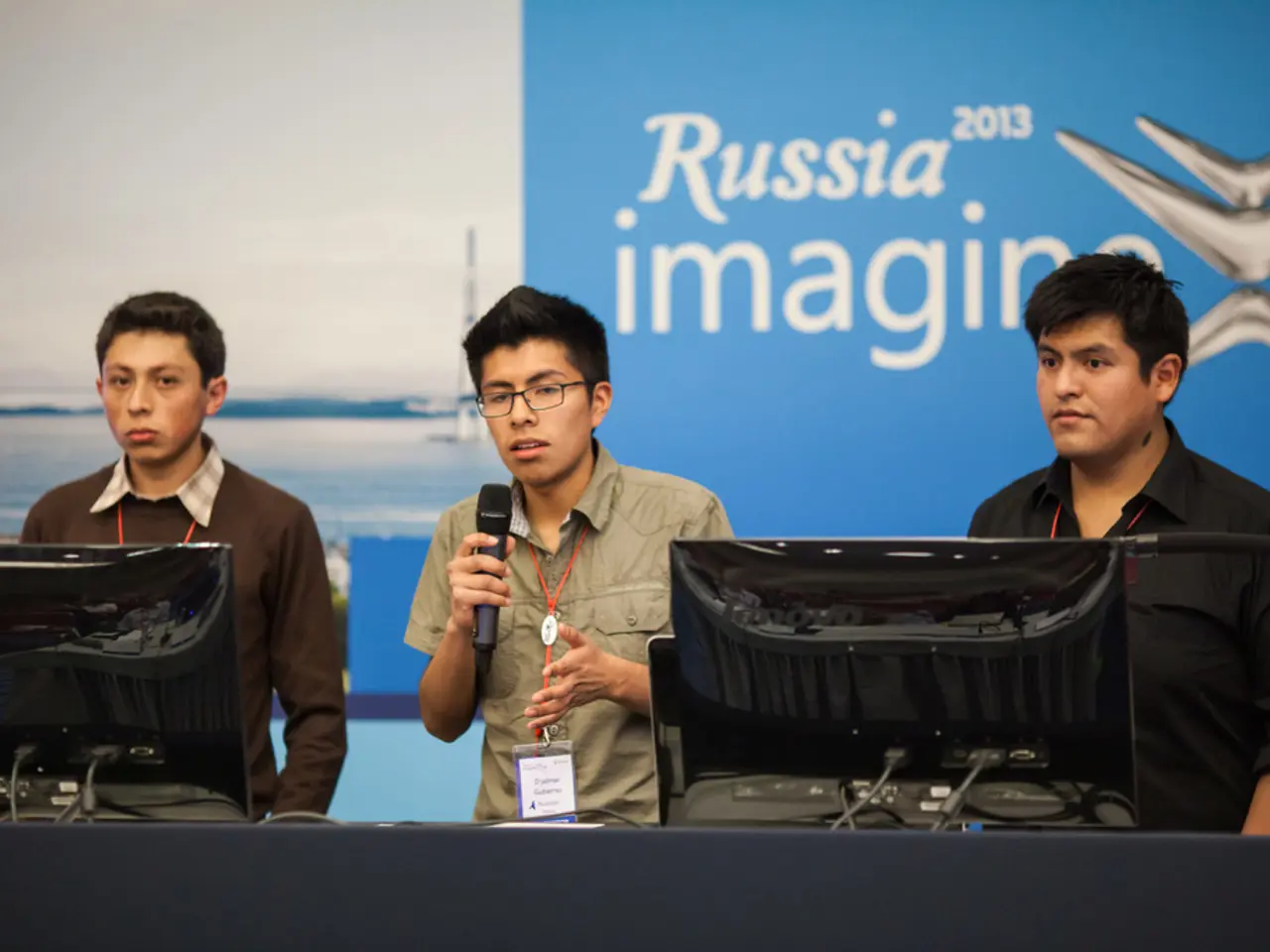Young Gen Z employees express concerns that advancements in AI could lead to the loss of their jobs and a subsequent shift towards manual, blue-collar work.
In an unexpected turn of events, the job market landscape for Gen Z is undergoing a significant transformation, often referred to as the "AIxiety Pivot." This phenomenon is a response to the increasing automation of entry-level jobs, particularly in predictable and data-intensive roles, due to the rising ubiquity of AI.
The Zety survey, which polled over 1,000 Zoomer employees in the US, revealed that 72% of Gen Z workers believe AI will eliminate entry-level corporate jobs within the next half-decade. This belief, coupled with concerns about AI-related job security, has led to a shift in career choices.
Stacie Haller, Chief Career Advisor at Resume Builder, stated that more Gen Z college graduates are turning to trade careers. Trade jobs offer hands-on work that's difficult to automate, according to Haller. The survey also found that 53% felt blue-collar and skilled trades, such as construction and plumbing, were less susceptible to AI takeovers.
The strategic career pivot among Gen Z is not without reason. The survey results showed that 40% of the adjusted plans involve teaching themselves new skills or earning certifications. This proactive approach is a response to the automation of entry-level jobs, with a 15% year-over-year drop in entry-level corporate job postings.
The contraction of the job market and increased selectivity by employers have also played a role in the "AIxiety Pivot." AI-driven layoffs have led to a shrinking job market for recent grads, with a notable rise in unemployment rates for this group (about 6% compared to the national average near 4%). Employers are becoming more selective, preferring workers who combine AI-related skills with creativity, emotional intelligence, and adaptability.
In response, many Gen Z workers are pivoting toward trade careers and "new collar" jobs—roles that emphasize technical skills gained through non-traditional education paths rather than traditional college degrees. These positions are typically more resilient to automation and offer promising employment opportunities, filling the gap created by disappearing entry-level roles.
The survey also highlighted the growing embrace of gig culture, freelancing, and multiple side gigs among Gen Z as adaptive strategies to navigate a rapidly evolving labor market landscape shaped by AI. This resilience stems from frustration with limited opportunities and a proactive approach to career development in an uncertain environment.
Despite the challenges, many Gen Z workers are not simply retreating from AI-driven change—they are leveraging it. They combine technical AI knowledge with uniquely human skills (creativity, leadership, emotional intelligence) to future-proof their careers against ongoing workplace transformation anticipated through 2030. Investments in AI literacy and digital skills are central to this long-term "anti-fragile" career approach.
Jasmine Escalera, a career expert at Zety, describes a growing movement among professionals called the 'AIxiety Pivot.' This shift towards trade careers, new collar roles, and gig work is a testament to the adaptability and resilience of Gen Z in the face of AI-induced changes in the job market.
- The growing trend among Gen Z is to invest in education and self-development, particularly in skills training, as a response to the increasing automation of entry-level jobs due to artificial intelligence.
- In the world of business, Gen Z workers are turning to education-and-self-development to equip themselves with technical skills that are less susceptible to automation, such as those found in trade careers.
- The contraction of the job market and increased selectivity by employers are pushing Gen Z towards careers that offer more resilience to automation, like technology-oriented roles.
- As part of their career-development strategies, many Gen Z workers are seeking jobs in sectors like healthcare, artificially intelligent technologies, or business, which require a unique human touch, such as creativity, leadership, and emotional intelligence.
- The rising popularity of freelancing and multiple side gigs among Gen Z can be seen as a job-search strategy, allowing them to navigate the rapidly evolving labor market landscape shaped by AI and maintain financial stability.
- Gen Z workers are future-proofing their careers not just by acquiring technical AI knowledge, but by also leveraging their uniquely human skills, creating an "anti-fragile" career approach in anticipation of ongoing workplace transformation through 2030.




